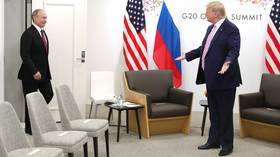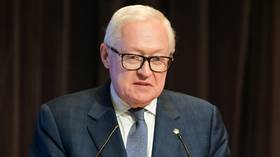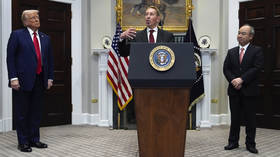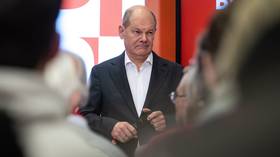UK cybercrime prosecutions rise 34% in 1 year

The number of cyber criminals prosecuted in Britain rose by almost 34 percent in 2015 while prosecutions for white collar criminals also increased marginally, new figures reveal.
The data, published by law firm Pinsent Masons, shows recorded figures for cybercrime prosecutions jumped from 45 in 2014 to 61 in 2015. The stats relate to the number of defendants who were prosecuted as opposed to the total tally of prosecutions carried out.
Head of Global Corporate Crime at Pinsent Masons, Barry Vitou, welcomed the increase.
“The fact that prosecutions continue to rise in this area is promising, and indicative of the efforts the authorities are making to get to grips with tackling what is a highly complex issue,” he told the Financial Times on Monday.
UK #Cybercrime Prosecutions Rise by a Third https://t.co/5Rz0wS6ovT#InfoSecMag
— Security News Bot (@SecurityNewsbot) May 23, 2016
Pinsent Masons’ data also reveals an increase in prosecutions for white-collar criminals. The law firm's figures show the number of prosecutions in this area rose by 59 since 2014.
High profile white collar crime cases filed by Britain’s Serious Fraud Office (SFO) include that of ex-UBS derivatives trader Tom Hayes, who was convicted of Libor rigging and the case of Magnus Peterson, who used his hedge fund Weavering Capital to commit financial fraud.
Cybercrime
A National Security Strategy, published by Downing Street in 2010, branded cyber-security a top priority for Britain, alongside global terrorism, international conflict and natural disasters.
In a climate saturated by e-commerce, online banking and digital devices, criminal syndicates and rogue actors have been quick to seize upon tech vulnerabilities.
While technology has dampened some criminal opportunities, it has inevitably enhanced others. Common forms of cyber criminality include digital fraud and the disruption of critical state infrastructure.
The National Cyber Crime Unit (NCCU), a division of Britain’s National Crime Agency (NCA), is responsible for tackling cybercrime in Britain. It works closely with a number of partners, including Regional Organized Crime Units (ROCUs), the Metropolitan Police Cyber Crime Unit (MPCCU) and a range of cross-border actors.
Interesting example of the growth in cybercrime capability @Europol@NCA_UKhttps://t.co/hN8rL6nGLB
— Rob Wainwright (@rwainwright67) May 23, 2016
The NCCU also works directly with the NCA, Britain’s version of the FBI, to track down online criminals.
Downing Street announced plans in early April to spend more than £40 million on a new cyber security center designed to protect Ministry of Defense (MoD) networks and systems from so-called “malicious actors”.
The dedicated Cyber Security Operations Centre (CSOC) facility will use advanced defense capabilities to shield the MoD’s cyberspace from threats, enabling it to operate more safely.
Cyber security in Britain
Most cybercrimes relate to data theft for the purpose of financial gain. However, hacking is also carried out by political protesters, and actors who engage in espionage by stealing state secrets.
A survey conducted by SecureData recently found that a third of private sector firms would consider hiring ex-hackers to assist them with their cyber security challenges. Some 97 percent of those polled branded data security critical to any modern cyber strategy.
The NCA recently faced criticism over its treatment of a 31-year-old digital activist accused of hacking into the Federal Reserve and a number of key US government systems.
The law enforcement body had tried to use a civil suit launched by cyber-security expert, Lauri Love, to force him to hand over his encryption keys. Love was seeking the return of a number of his encrypted devices, currently held by the NCA.
The law enforcement body's maneuver was blocked by Judge Nina Tempia, however, who ruled that Love was under no obligation to hand over his passwords.
Love still faces possible extradition to the US over allegations he and several hacktivists violated US online networks in protest against the US criminal justice system’s draconian treatment of the late Aaron Swartz.
Love's extradition hearing is scheduled for the 28th and 29th June. His US lawyer, Tor Ekeland, says the cyber security expert's skills should be nurtured by the British government.
“Talented thinkers like him are an asset in identifying security flaws in computer systems,” Ekeland told RT in April.
"If the U.S. had been prosecuting computer crimes in the 1970’s like they are now, Steve Jobs, Steve Wozniak and Bill Gates all would have gone to jail and you would have no Apple or Microsoft because both those companies were started by hackers."













